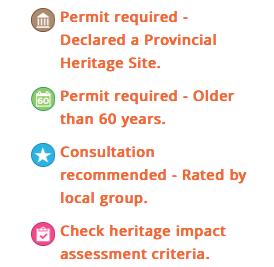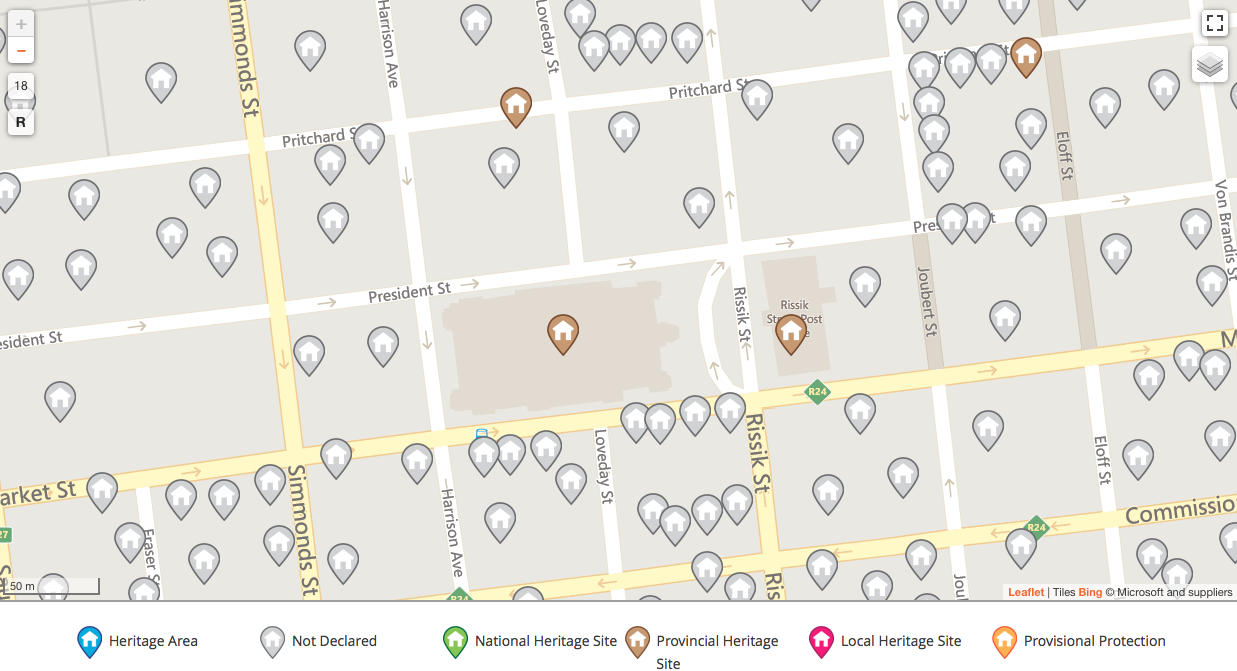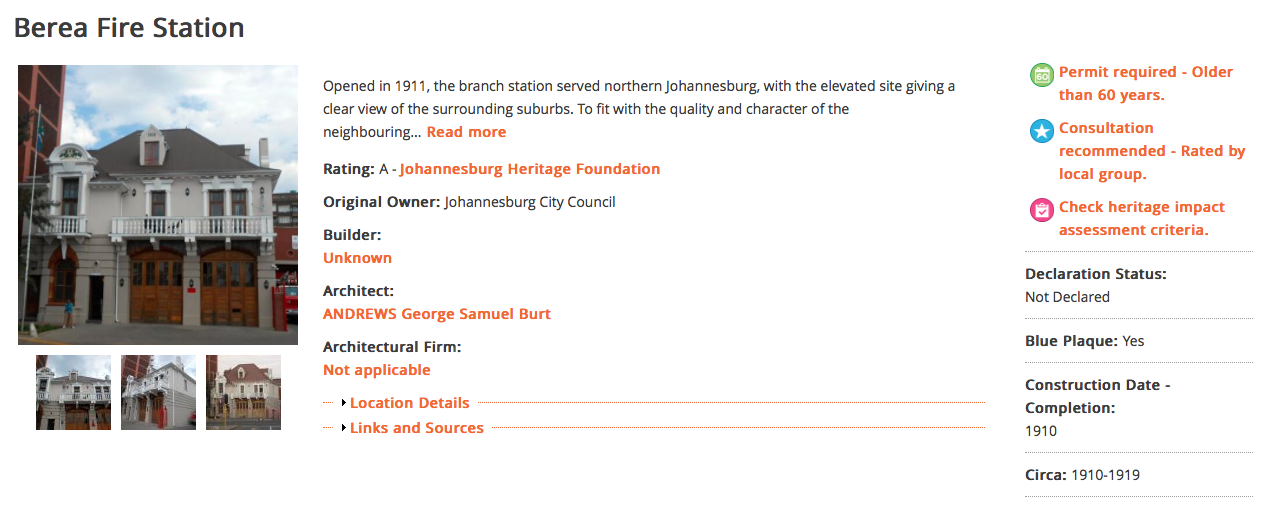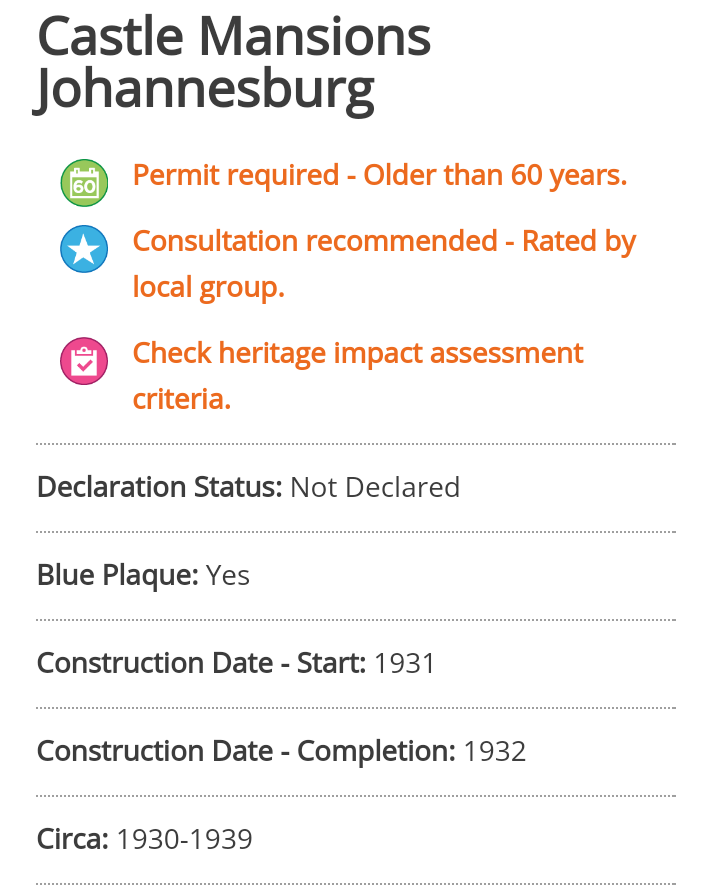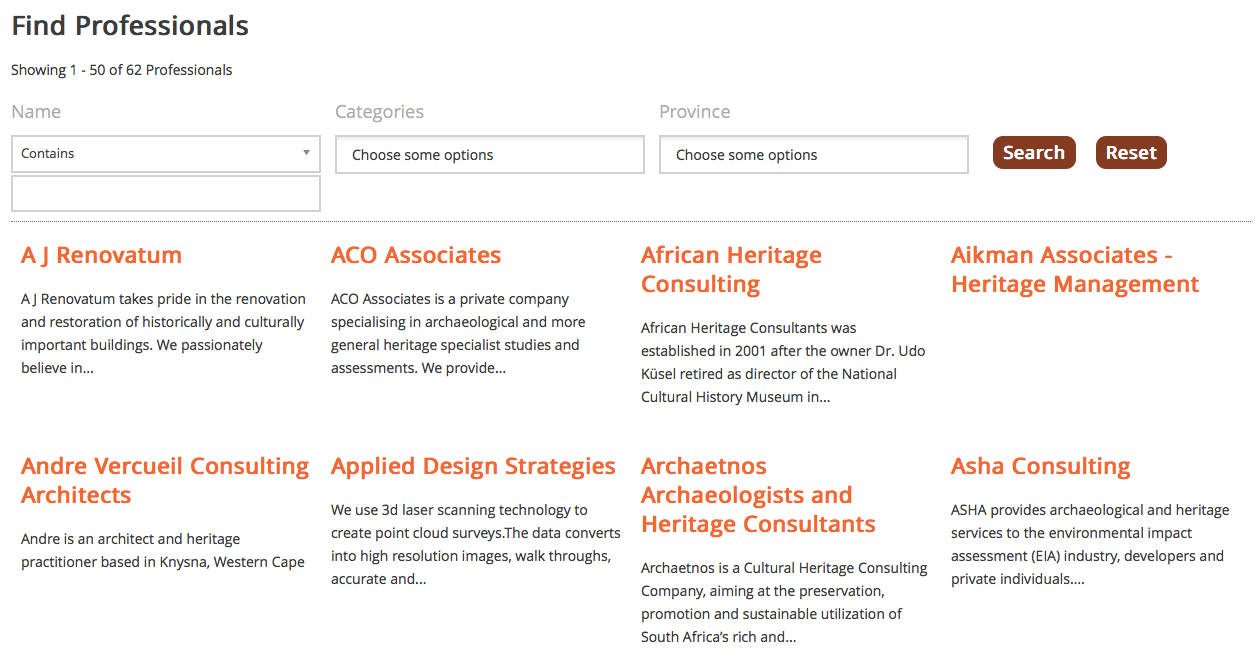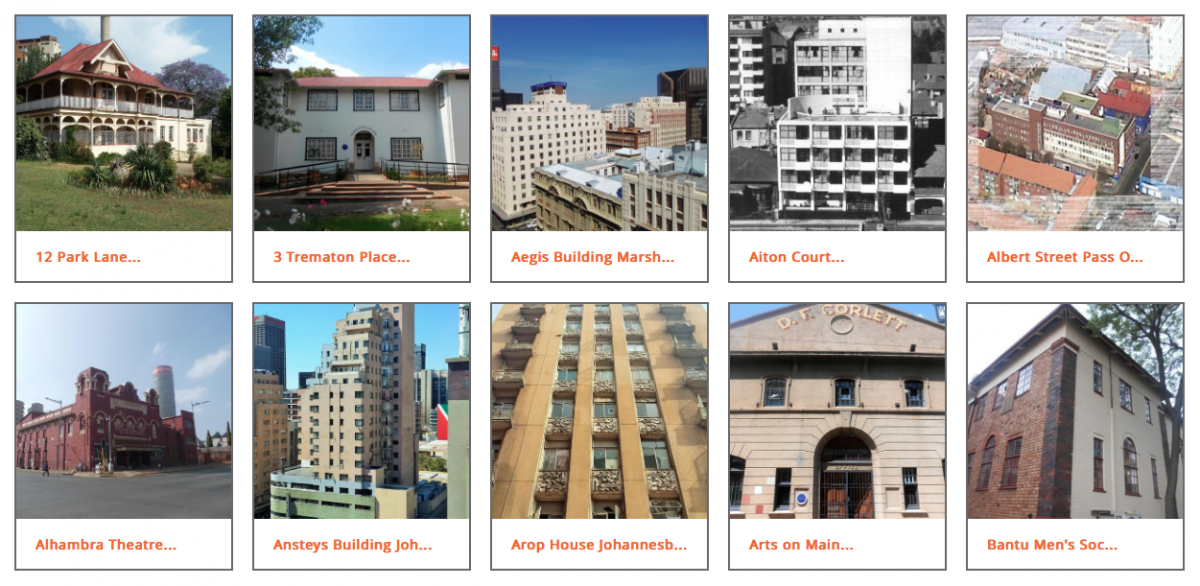
Disclaimer: Any views expressed by individuals and organisations are their own and do not in any way represent the views of The Heritage Portal. If you find any mistakes or historical inaccuracies, please contact the editor.
For many years, the heritage community in Johannesburg has been searching for a way to let property owners know up front whether they need to follow heritage processes before carrying out work. This Heritage Month, I am happy to announce that such a tool has arrived with the launch of The Heritage Register (click here to view).
Very few Joburg citizens are aware that they need a permit from the Provincial Heritage Resources Authority Gauteng (PHRAG) before they can alter or demolish any part of a property that is within a heritage area, is a declared (or provisionally declared) heritage site or is older than sixty years. With the new system, users can see which 'flags' apply and what processes they need to follow. Not only does this improve decision making and reduce the risk of breaking the law but it helps to preserve significant spaces and places across the city.
A screenshot of the 'flags' that appear on Heritage Register site listings. Users click on the label for guidance on what processes apply.
The Heritage Register provides users with various options to find the property they are looking for including a map search and a google search. Users must, however, be aware that only a few suburbs have been covered so if a property doesn't appear on the system, it doesn't necessarily mean that no flags apply (users will need to conduct their own research or hire a professional to assist when this happens).
A zoomed in portion of the map search. Users can pan and zoom to find the property they are looking for. The map provides users with road, satellite and hybrid layers. The points are colour-coded according to a property's declaration status.
Once a user has clicked through to a site listing they will have access to a spectrum of information including its declaration status, blue plaque status, volunteer rating, construction date, architect or architectural firm, builder and full locaton details (where available). In addition to this they will be able to view photographs, download attachments and browse sources (again where available). The flags will appear on the right hand side of the page when viewing the system on larger screens and right at the top on smaller screens.
A portion of a site listing on a large screen (click here to view the full listing)
A portion of a site listing on smaller screens (click here to view full listing)
The Heritage Register has been designed specifically for property owners, developers and estate agents so they are aware of any flags at the beginning of the planning process. However, the system will also be useful to heritage professionals, officials, researchers, tour guides, general enthusiasts and others. A tour guide may want to generate a list of blue plaque sites while researching a new tour. A researcher may want to pull up a list of structures designed by a specific architect or architectural firm. A journalist may need to find background information on a specific building while following up a hot lead. An official, while preparing for a committee meeting, may want to see if a local organisation has rated a specific property. As the database grows, it is hoped that uses that haven't even been thought of yet will emerge.
An additional service offered by The Heritage Register is the Professionals Directory. Here users can find experts who can assist with specialist advice. In a very busy world, it often makes sense to get those with the knowledge, experience and network to guide you through the various heritage processes. Click here to view the Professionals Directory.
A screenshot of the Professionals Directory
The development of The Heritage Register is the result of a partnership between the Johannesburg Inner City Partnership (JICP), Johannesburg's heritage groups (most importantly the Johannesburg Heritage Foundation) and various departments within the City of Johannesburg. All stakeholders have realised the benefits of making heritage information available at the beginning of the planning process.
A key focus for The Heritage Register team in the short to medium term will be to add site listings across Johannesburg's inner city. Mayor Herman Mashaba has made reviving the inner city a key priority for his administration. At the same time, he has committed to improve law enforcement. Without the timeous provision of heritage data, at least one of these promises will remain unfulfilled.
If you need further information about The Heritage Register including details of how to get involved in this important work contact James Ball | jamesball01@gmail.com.
The Heritage Register was developed by the expert team at Burtronix.
Comments will load below. If for any reason none appear click here for some troubleshooting tips. If you would like to post a comment and need instructions click here.

